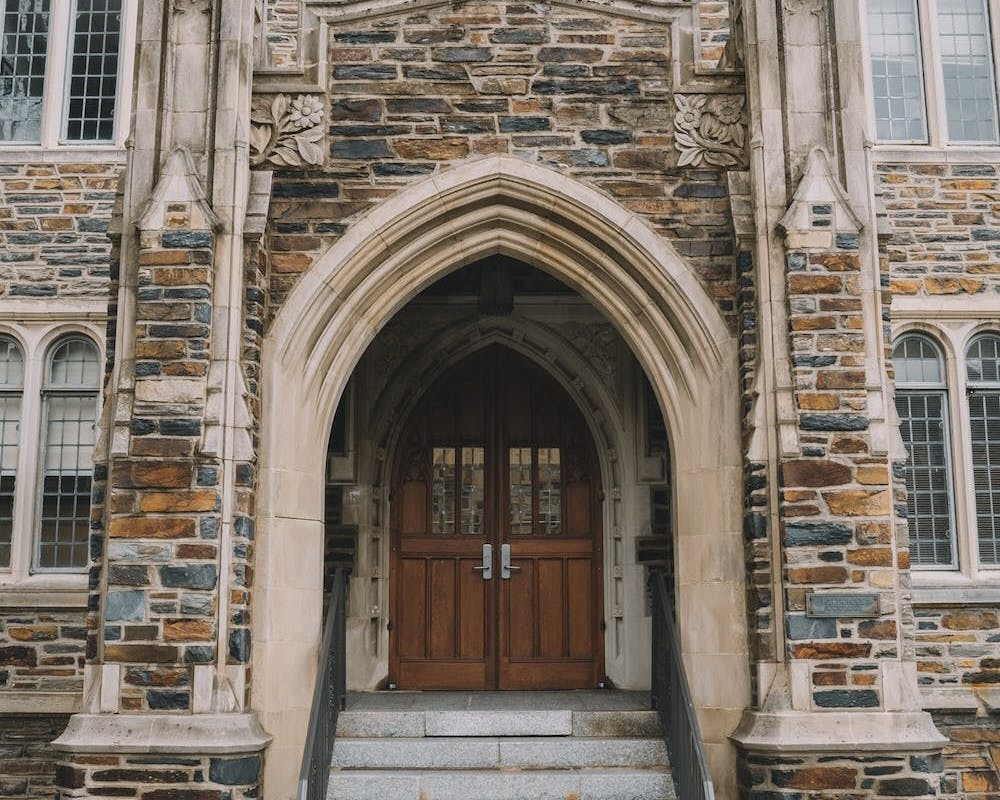Academic Council heard presentations on Duke’s finances, the renewal of University facilities and an annual report from the Office of the Ombuds at its Thursday meeting.
Adem Gusa, director of planning and design, gave a presentation outlining the future of the University’s capital investment and emphasizing a need for investments in pre-existing facilities.
“If you look at the most recent two decades, leading up to the pandemic, [the University] grew on average about 3.4 million gross square feet in each of those 10-year periods,” Gusa said, adding that Duke’s future involves “being better stewards of what we have,” rather than continued expansion.
Gusa described how research labs, classrooms and offices possess the lowest “net asset values,” which measures the number of major building systems and components that presently operate “beyond their useful life.”
Among the buildings Gusa recommended for renovations in the next decade were Reuben-Cooke, Old Chemistry, Social Sciences, Languages, Biological Sciences, Physics, Hudson and Teer Buildings. Gusa estimated that the cost of these building renovations would be approximately $1.2 billion.
Executive Vice President Daniel Ennis and Vice President for Finance Rachel Satterfield addressed questions on the Duke University Health System’s recent financial challenges and the University’s resource constraints.
“Going into COVID, you had the foreshadowing of problems,” Ennis said, referencing the health system’s scale relative to peer institutions. “And COVID comes, and you get this sort of once-in-a-generation … enormous labor shortage.”
However, Ennis remained optimistic about the financial state of the Duke Health, which received “impressive” investment results this year.
Satterfield also weighed in on the University’s finances.
“The investment returns in the last two years have been relatively flat, [but] on a longer term basis, you would see that we are in the top decile or quartile in comparison to our peers,” she said.
In addition, she mentioned how the endowment can be accessed sustainably at 5% while remaining within target ranges.
In other business
The council heard a presentation by University Ombuds Jessica Kuchta-Miller about the actions and accomplishments of the Ombuds Office over the past year.
The office’s purpose, Kuchta-Miller stated, was “to facilitate, to navigate, [to] illuminate and to educate to provide space for people to talk about their experiences here at Duke.”
According to Kunchta-Miller, 297 distinct or unique people used the Ombuds Office in 2023, with 30% of visitors being faculty. Across faculty and students, the top reason for visits was evaluative relationships in the workplace.
The year also brought structural changes to the Office: it adopted new terms of use, and its charter was endorsed by the International Ombuds Association.
Professor of Law Thomas Metzloff, who is a former faculty ombudsperson, asked about new changes to the nature of faculty investigations. Professor of Physics Joshua Socolar similarly asked about how the office’s experience and recommendations can be communicated to people that can resolve conflicts as they arise.
In response, Kuchta-Miller highlighted how recent investigations were primarily related to human resources and professionalism and that she shared relevant information with presidents, the provost and others in decision-making roles.
Get The Chronicle straight to your inbox
Signup for our weekly newsletter. Cancel at any time.
Ryan Kilgallen is a Trinity first-year and a staff reporter for the news department.

